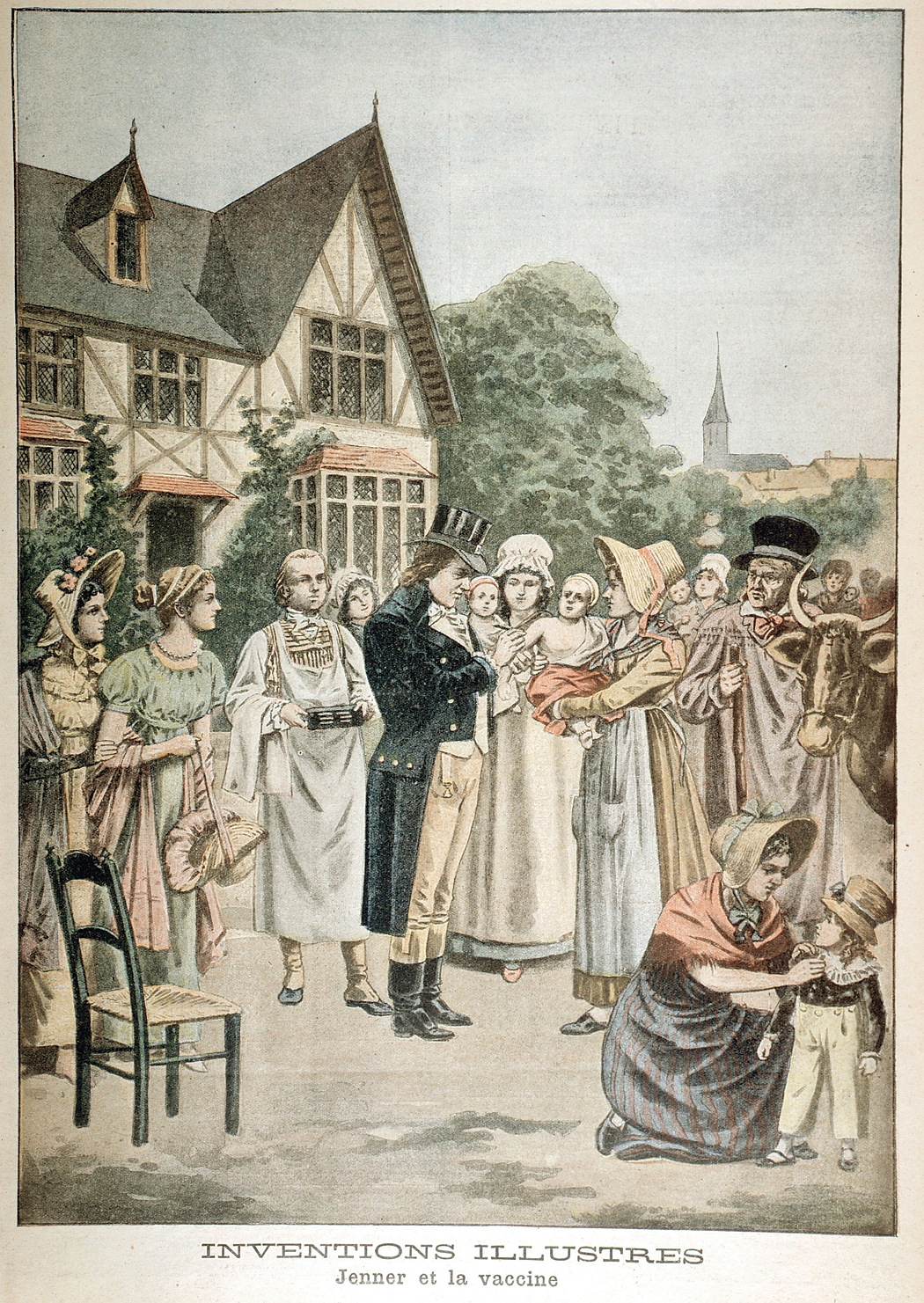Jenner, Edward (1749-1823), a British physician, discovered vaccination as a means of preventing smallpox. Before his time, no parents counted their children safe until all had passed through smallpox. This disease was an ever-present horror through the centuries (see Smallpox).
It was common knowledge in Jenner’s time that a person could catch smallpox only once. Many people tried to inoculate themselves with matter from smallpox sores. They hoped to catch a light case of the disease, and then be immune to it for the rest of their lives. Lady Mary Wortley Montagu, an English author, had introduced this method into England in 1718. But the method was dangerous.
Jenner’s work.
Jenner began experimenting in his home town, Berkeley, Gloucestershire. Many people there believed that dairymaids who had caught cowpox could not catch smallpox. Cowpox is a minor disease that causes a few sores on the hands but carries little danger of disfigurement or death. In 1796, Jenner took matter from the hand of Sarah Nelmes, a local dairymaid. She had become infected with cowpox while milking the cows. Jenner then made two cuts on the arm of James Phipps, a healthy 8-year-old boy, and inserted the matter from one of Sarah’s cowpox sores. The boy then caught cowpox. Forty-eight days later, Jenner introduced smallpox matter into the boy’s arm. Ordinarily fatal, the smallpox matter had no effect, because the boy had been vaccinated with cowpox matter. Jenner’s experiment proved to be successful. This was the first vaccination ever given.

Recognition.
After several more experiments, Jenner published Inquiry into the Causes and Effects of the Variolae Vaccinae (1798). He then went to London to make his discovery known to the medical world. In 1799, he published Further Observations on the Variolae Vaccinae or Cowpox, which he wrote chiefly as a reply to people who opposed vaccination. After 1800, vaccinations became accepted as a means to prevent smallpox.
Honors came to Jenner from all parts of the world. Parliament granted him 10,000 pounds in 1802, and another 20,000 pounds in 1806, because he devoted so much of his time to his discovery that he lost income from his regular medical practice. Oxford University conferred an honorary Doctor of Medicine degree on Jenner in 1813.
Jenner was born on May 17, 1749, in Berkeley, Gloucestershire. In 1770 he went to London to study medicine under John Hunter, a British surgeon, and at Saint George’s Hospital in London. He returned to Berkeley, where he began practicing medicine, and he remained there most of his life. He died on Jan. 26, 1823.
